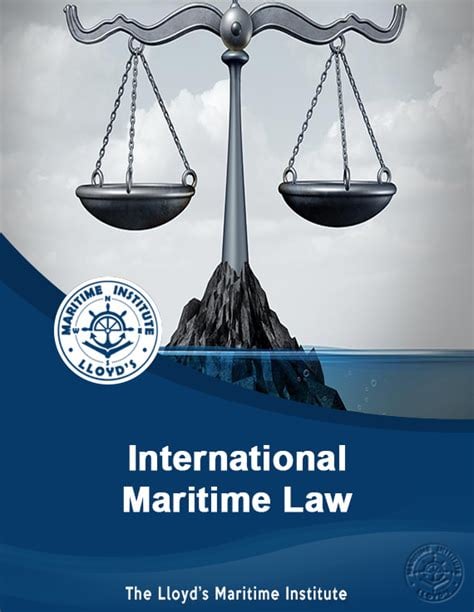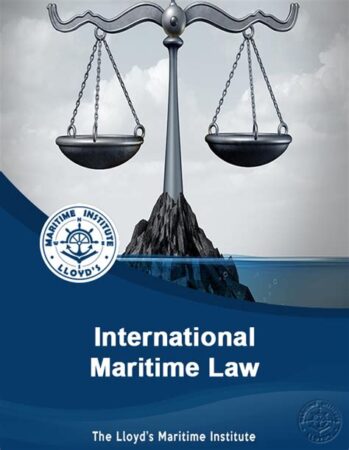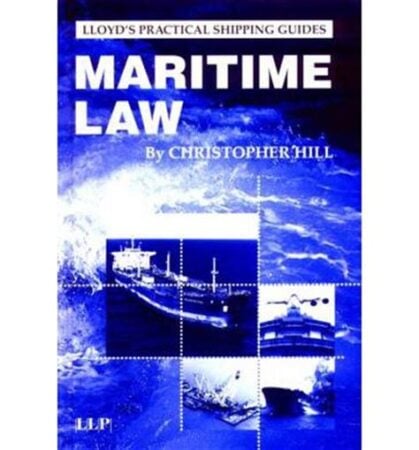
- Introduction
- Sources of International Maritime Law
- Jurisdiction and Enforcement
- Key Areas of International Maritime Law
- Table: Key Provisions of International Maritime Law
- Conclusion
-
FAQ about International Maritime Law
- What is international maritime law?
- Why is international maritime law important?
- Who creates international maritime law?
- What is the role of the United Nations in international maritime law?
- What are some of the key principles of international maritime law?
- How is international maritime law enforced?
- What are some of the challenges facing international maritime law?
- How can I learn more about international maritime law?
- What are some of the careers in international maritime law?
- What is the future of international maritime law?

Introduction
Welcome, readers! Are you intrigued by the captivating realm of international maritime law? In this article, we will immerse ourselves in the intricacies of this multifaceted legal framework that governs the interactions, transactions, and disputes arising from the vast expanses of the world’s oceans and seas.
International maritime law plays a crucial role in regulating shipping, fishing, environmental protection, and other activities on the high seas. It ensures the safety of navigation, protects marine resources, and fosters cooperation among nations with maritime interests.
Sources of International Maritime Law
International Conventions
International conventions are legally binding agreements between states that codify the rules and principles of maritime law. Key conventions include the United Nations Convention on the Law of the Sea (UNCLOS), the International Maritime Organization (IMO) conventions, and agreements on specific topics such as marine pollution and search and rescue.
Customary International Law
Customary international law arises from the established practices and behaviors of states that are generally accepted as legally binding. It includes principles such as the freedom of the high seas, the right of innocent passage, and the obligation to render assistance to vessels in distress.
Jurisdiction and Enforcement
Types of Jurisdiction
International maritime law recognizes various types of jurisdiction, including:
- Territorial jurisdiction: States have exclusive jurisdiction over vessels and persons within their territorial waters.
- Flag state jurisdiction: States have primary jurisdiction over vessels flying their flag, regardless of their location.
- Port state jurisdiction: States have limited jurisdiction over foreign vessels entering their ports.
Enforcement Mechanisms
Enforcement of international maritime law is primarily the responsibility of individual states. They can utilize various mechanisms, such as:
- Port state control: Inspections of foreign vessels in ports to ensure compliance with safety and environmental regulations.
- Flag state enforcement: Investigations and prosecutions of vessels flying their flag for violations of international law.
- International cooperation: Cooperation among states through agreements and organizations to address cross-border issues and facilitate enforcement.
Key Areas of International Maritime Law
Navigation and Shipping
International maritime law governs the movement of vessels at sea, including rules on navigation lights, traffic separation schemes, and vessel safety standards. It also addresses the legal responsibilities of ship owners, operators, and crews.
Marine Pollution
International maritime law aims to prevent and control marine pollution from vessels, offshore installations, and other sources. It includes regulations on discharges, waste management, and the use of oil and hazardous materials.
Environmental Protection
International maritime law recognizes the need to protect the marine environment from human activities. It establishes marine protected areas, prohibits certain types of fishing, and regulates the disposal of waste and ballast water.
Table: Key Provisions of International Maritime Law
| Area | Key Provisions |
|---|---|
| Navigation and Shipping | Freedom of the high seas, right of innocent passage, navigation rules |
| Marine Pollution | Prevention of oil spills, waste management, discharge standards |
| Environmental Protection | Marine protected areas, fishing regulations, ballast water management |
Conclusion
International maritime law is a complex and dynamic field that plays a vital role in ensuring the safety, security, and sustainability of our oceans and seas. Its provisions and principles govern a wide range of activities, from shipping and navigation to environmental protection and dispute resolution. By understanding the fundamentals of international maritime law, you can navigate the legal complexities of this vast and interconnected realm with confidence.
For further exploration, we invite you to check out our additional articles on specific aspects of international maritime law, such as the United Nations Convention on the Law of the Sea, flag state jurisdiction, and the role of the International Maritime Organization.
FAQ about International Maritime Law
What is international maritime law?
International maritime law is a body of rules and regulations that govern the conduct of nations and individuals at sea. It includes laws governing navigation, safety, pollution, and the exploitation of marine resources.
Why is international maritime law important?
International maritime law is important because it helps to ensure the safety and security of shipping, protects the marine environment, and promotes fair and equitable use of the oceans.
Who creates international maritime law?
International maritime law is created through a variety of mechanisms, including treaties, conventions, and customary international law.
What is the role of the United Nations in international maritime law?
The United Nations plays a key role in developing and enforcing international maritime law. The UN Convention on the Law of the Sea (UNCLOS) is the most comprehensive international treaty on maritime law.
What are some of the key principles of international maritime law?
Some of the key principles of international maritime law include the freedom of navigation, the right of innocent passage, the duty to assist ships in distress, and the obligation to protect the marine environment.
How is international maritime law enforced?
International maritime law is enforced through a variety of mechanisms, including national courts, international tribunals, and sanctions.
What are some of the challenges facing international maritime law?
Some of the challenges facing international maritime law include the increasing complexity of shipping operations, the growth of piracy and terrorism, and the degradation of the marine environment.
How can I learn more about international maritime law?
There are a variety of resources available to help you learn more about international maritime law, including books, articles, and websites.
What are some of the careers in international maritime law?
There are a variety of careers in international maritime law, including lawyers, judges, diplomats, and academics.
What is the future of international maritime law?
The future of international maritime law is uncertain, but it is likely to continue to evolve in response to the challenges facing the global shipping industry.





